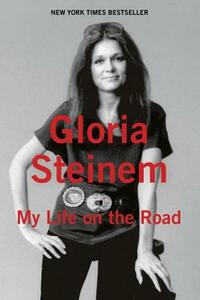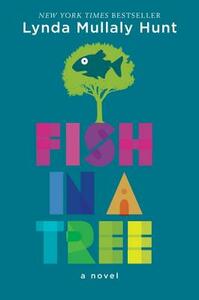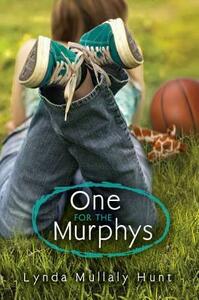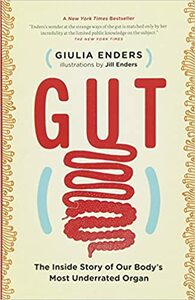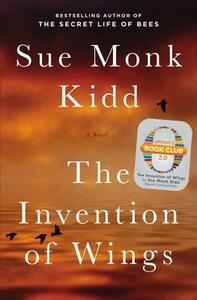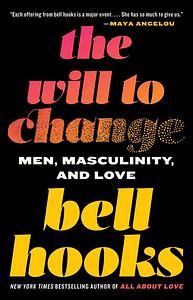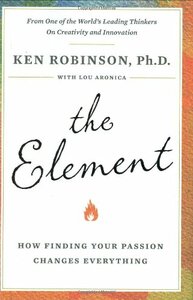You need to sign in or sign up before continuing.
Take a photo of a barcode or cover
laurieb755's Reviews (784)
Thoroughly enjoyed Gloria's book, a series of short stories and vignettes about her life entwined with (mostly) American life over the span of her 80+ years. She begins by letting us into her early childhood on the road with her parents. Her father had a peripatetic wanderer's spirit, and her mother came along until it became too much for her. This background helps explain some of Gloria's spirit.
I loved this book for two reasons. First, she is a wonderful story teller. Almost any of the vignettes could be turned into longer stories with a "before" and "after". These tales were a blatant reminder that as a New Yorker living in a suburb northeast of the city, I live in a cocoon. My understanding of the plurality and tribulations of Native Americans, Americans and immigrants is vastly limited. I *think* I understand people elsewhere, but without knowing many folks - truly knowing them - I can only put my take on their issues. Humbling.
The other reason for liking this book is that Gloria was a mirror on my mother's generation. My mother was more a Betty Friedan type than a Gloria Steinem type, yet my mother liked the gutsiness of Gloria and was among the early subscribers to Ms magazine.
Steinem is a community person - she gets her drive from the people she meets. A community organizer who believes in sharing, talking, and trying.
I loved this book for two reasons. First, she is a wonderful story teller. Almost any of the vignettes could be turned into longer stories with a "before" and "after". These tales were a blatant reminder that as a New Yorker living in a suburb northeast of the city, I live in a cocoon. My understanding of the plurality and tribulations of Native Americans, Americans and immigrants is vastly limited. I *think* I understand people elsewhere, but without knowing many folks - truly knowing them - I can only put my take on their issues. Humbling.
The other reason for liking this book is that Gloria was a mirror on my mother's generation. My mother was more a Betty Friedan type than a Gloria Steinem type, yet my mother liked the gutsiness of Gloria and was among the early subscribers to Ms magazine.
Steinem is a community person - she gets her drive from the people she meets. A community organizer who believes in sharing, talking, and trying.
Yesterday I commented on this book cover found sitting on the desk of a 5th grade teacher at the school where I teach. With his recommendation and offer to loan it out, I could not resist borrowing the book. I enjoy young adult literature (often finding it better written than some adult fiction I've read) and snapped it up with a thanks.
That was yesterday afternoon. I finished the book last night, staying up beyond my normal bedtime because Ally's story, and that of her friends and brother, pulled at my heart strings, at my maternal strings, and my teacher strings.
This is the book to give your child to read or to read aloud with your child. And if your child is at the stage where s/he balks at something suggested by you, find a way for someone else to suggest it or read it with them, or to ask one child to read it to another. It's up there with Cassie Beasley's Circus Mirandus.
If you judge a fish by its ability to climb a tree, it will live its life believing it is stupid.
That was yesterday afternoon. I finished the book last night, staying up beyond my normal bedtime because Ally's story, and that of her friends and brother, pulled at my heart strings, at my maternal strings, and my teacher strings.
This is the book to give your child to read or to read aloud with your child. And if your child is at the stage where s/he balks at something suggested by you, find a way for someone else to suggest it or read it with them, or to ask one child to read it to another. It's up there with Cassie Beasley's Circus Mirandus.
If you judge a fish by its ability to climb a tree, it will live its life believing it is stupid.
I borrowed Lynda Mullaly Hunt's second book, Fish in a Tree, from a 5th grade teacher at my school. I returned it the next day, having read it in one sitting. Not because it was an easy read, but because it tugged at my heart and wouldn't stop till I reached the end.
Sharing that with the teacher, his co-teacher then insisted I borrow this book, Hunt's first. I brought it home yesterday and read it this evening, unable to stop except for a bathroom break and to see something my husband wanted me to see. (My family might say that was oversharing, but it was necessary to make the point – this book is every bit impossible to put down as the other one.)
Lynda Mullaly Hunt has an uncanny way with expressing emotions and feelings and thoughts of children. And I just took a break from writing this to explore her website: http://www.lyndamullalyhunt.com, which is equally lovingly crafted.
My eyes are tired so I will end, but go read Hunt's books and find a new friend (in her stories and in her as an author.) :-)
Sharing that with the teacher, his co-teacher then insisted I borrow this book, Hunt's first. I brought it home yesterday and read it this evening, unable to stop except for a bathroom break and to see something my husband wanted me to see. (My family might say that was oversharing, but it was necessary to make the point – this book is every bit impossible to put down as the other one.)
Lynda Mullaly Hunt has an uncanny way with expressing emotions and feelings and thoughts of children. And I just took a break from writing this to explore her website: http://www.lyndamullalyhunt.com, which is equally lovingly crafted.
My eyes are tired so I will end, but go read Hunt's books and find a new friend (in her stories and in her as an author.) :-)
As a fan of Victorian novels, many years ago I asked a neighbor (also a well-read fan) what novels and which authors she recommended. Without batting an eyelash she said The Woman in White by Wilkie Collins. I have since read that plus The Moonstone, No Name, The Dead Secret, Miss or Mrs?, The Haunted Hotel, and The Guilty River. I enjoyed each one, with the first two being superb.
So it was that I was eager to read Peter Ackroyd's brief book about Collins, having seen the review of it in an October issue of the New York Times. Ackroyd's book did not disappoint.
Initially, in the early chapters, I had to work through Ackroyd's language. While written in 2012, his use of language reminded me more of a Collins' novel than a contemporary author's. The book is peppered with words new to me, including on page 31: rodomontade.
I included the entire quote so that anyone reading my review can have the benefit of the full sentence to try and figure out the meaning of the word (or perhaps you already knew its meaning?)
Turns out that rodomontade means "boastful talk or behavior" and is a "mass" noun, meaning that it needs to have a unit of measurement to indicate quantity. I ran into several instances of new-to-me vocabulary, each causing me to think of Ackroyd as a modern biographer using Victorian language to write about a Victorian author. Nonetheless, I came to delight in coming upon these words and eventually got into Ackroyd's rhythm of writing.
I smiled to learn that Collins and Dickens were close friends who joined together for traveling, producing and acting in plays, and living according to their own creeds. Collins was not a fan of Victorian mores and had a most unusual romantic life. Ackroyd explains the two women of Collins's life as two misstresses overlapping one another. Ultimately, the first woman because his companion and co-traveler, and the second woman was the mother of his three children. He left his estate equally to the two of them, and there was no question in my mind that he respected both of them.
I had no preconceived notion of Collins as a person other than appreciating him as a story teller. Apparently that was his strength, being a story teller who could conceive of complex twists and turns while poking holes in Victorian life. Critics of the time enjoyed his stories but noted the tales themselves were more robust than his character development. This did not deter the public from enjoying his books and productions, and contributing to his financial independence through their patronage.
Peter Ackroyd's book provides an excellent window into Wilkie Collins, his contemporaries, and Victorian times; almost feels like he was there with them all – writing, suffering through health crises, producing, traveling, and living.
So it was that I was eager to read Peter Ackroyd's brief book about Collins, having seen the review of it in an October issue of the New York Times. Ackroyd's book did not disappoint.
Initially, in the early chapters, I had to work through Ackroyd's language. While written in 2012, his use of language reminded me more of a Collins' novel than a contemporary author's. The book is peppered with words new to me, including on page 31: rodomontade.
His first work is a slight piece of rodomontade entitled "Volpurno"; its existence is only known because it was reprinted in a New York journal, and its first English publication is not recorded.
I included the entire quote so that anyone reading my review can have the benefit of the full sentence to try and figure out the meaning of the word (or perhaps you already knew its meaning?)
Turns out that rodomontade means "boastful talk or behavior" and is a "mass" noun, meaning that it needs to have a unit of measurement to indicate quantity. I ran into several instances of new-to-me vocabulary, each causing me to think of Ackroyd as a modern biographer using Victorian language to write about a Victorian author. Nonetheless, I came to delight in coming upon these words and eventually got into Ackroyd's rhythm of writing.
I smiled to learn that Collins and Dickens were close friends who joined together for traveling, producing and acting in plays, and living according to their own creeds. Collins was not a fan of Victorian mores and had a most unusual romantic life. Ackroyd explains the two women of Collins's life as two misstresses overlapping one another. Ultimately, the first woman because his companion and co-traveler, and the second woman was the mother of his three children. He left his estate equally to the two of them, and there was no question in my mind that he respected both of them.
I had no preconceived notion of Collins as a person other than appreciating him as a story teller. Apparently that was his strength, being a story teller who could conceive of complex twists and turns while poking holes in Victorian life. Critics of the time enjoyed his stories but noted the tales themselves were more robust than his character development. This did not deter the public from enjoying his books and productions, and contributing to his financial independence through their patronage.
Peter Ackroyd's book provides an excellent window into Wilkie Collins, his contemporaries, and Victorian times; almost feels like he was there with them all – writing, suffering through health crises, producing, traveling, and living.
Read this for the entertaining approach Guilia Enders takes to telling the story of our oft-considered messy gut, or read this for the new insights you will get about how your body works, or read it for your health!
I read it once this summer to have my insides turned out so I could better understand and 'see' what's there. I will read it a second time to cement my understanding and consider - for a second time - how best to incorporate new knowledge about my body into my eating habits.
It helps that this summer I also watched the documentary Forks Over Knives, and prior to viewing had borrowed the cookbook of the same name from our library and also downloaded the free app. It helps that our older son has been vegan for close to 10 years. It helps that my eating habits have changed, partially due to my own efforts and partially because that same son and his family have been living with us for the past year, and I have seen the positive impact on my cholesterol levels due to the changes.
You can learn more about Forks Over Knives here: http://www.forksoverknives.com
I read it once this summer to have my insides turned out so I could better understand and 'see' what's there. I will read it a second time to cement my understanding and consider - for a second time - how best to incorporate new knowledge about my body into my eating habits.
It helps that this summer I also watched the documentary Forks Over Knives, and prior to viewing had borrowed the cookbook of the same name from our library and also downloaded the free app. It helps that our older son has been vegan for close to 10 years. It helps that my eating habits have changed, partially due to my own efforts and partially because that same son and his family have been living with us for the past year, and I have seen the positive impact on my cholesterol levels due to the changes.
You can learn more about Forks Over Knives here: http://www.forksoverknives.com
Last to first, that's the order in which I wound up reading Erma J Fisk's first and last books, though the last was a compilation of her writings after her death in 1990. It was that compilation, A Cape Cod Journal that made me yearn for more of this feisty woman's thoughts, so perfectly expressed in her written words. From Baboquivari:
My trouble is, I like words. Day after day, no one to talk with I talk to myself, string words together as I run the nets. …
I leave paragraphs in the air behind me as I do footprints in the sands of the Creek. Like the footprints, a few of them may last and get written down in the evenings–a form of doodling to occupy me once I have recorded the day's meager scientific data, while the lamp hisses and the mice rustle.
I didn't plan to write this journal. It arrived uninvited, like a stray dog by my stove, demanding attention, nourishment; offering companionship. Phrases turning around and around, like a dog underfoot–under my tongue, under my hand, until finally they and I became comfortable together.
This is more than a journal of birds and Baboquivari mountain. It is Erma's story of perseverance, curiosity, strength, self-questioning, love and loss, nature, preservation of nature, and living. I scour the Internet for images of her and more about her life, particularly her last years, and have to content myself with reading her books. There is a lure about her vitality and determination, her Cape Cod-ness, her ability to be truthful in her writing – to say how she feels and no matter to what others may think.
And, if you weren't a bird watcher beforehand, reading Erma's journals might, just might, make you curious enough to sit a tad longer looking out the window for evidence of these wondrous winged animals.
My trouble is, I like words. Day after day, no one to talk with I talk to myself, string words together as I run the nets. …
I leave paragraphs in the air behind me as I do footprints in the sands of the Creek. Like the footprints, a few of them may last and get written down in the evenings–a form of doodling to occupy me once I have recorded the day's meager scientific data, while the lamp hisses and the mice rustle.
I didn't plan to write this journal. It arrived uninvited, like a stray dog by my stove, demanding attention, nourishment; offering companionship. Phrases turning around and around, like a dog underfoot–under my tongue, under my hand, until finally they and I became comfortable together.
This is more than a journal of birds and Baboquivari mountain. It is Erma's story of perseverance, curiosity, strength, self-questioning, love and loss, nature, preservation of nature, and living. I scour the Internet for images of her and more about her life, particularly her last years, and have to content myself with reading her books. There is a lure about her vitality and determination, her Cape Cod-ness, her ability to be truthful in her writing – to say how she feels and no matter to what others may think.
And, if you weren't a bird watcher beforehand, reading Erma's journals might, just might, make you curious enough to sit a tad longer looking out the window for evidence of these wondrous winged animals.
THIS is how history should be introduced – through historically based fiction that draws the reader in to a world and then prompts the reader to want to know more, to learn the ins and outs and the whys of the people and period.
Sue Monk Kidd has outdone herself with The Invention of Wings and I was hooked to the very last word and beyond to the end of her Author's Note.
I did not know the Grimké sisters were real people (having glossed over that point on the inside front book jacket). When I mentioned the story and characters to my husband, he immediately asked if the book was about the Grimké sisters who were the abolitionists.
This book will wrench your heart and your mind, reminding you of the horrific struggles undergone by slaves in America, and of the long term quest for race and gender equality.
If you are eager to learn more, as was I, Kidd provides an extensive list of "very readable books" at the end of her Author's Note, including:
• The Grimké Sisters from South Carolina: Pioneers for Women's Rights and Abolition, by Gerda Lerner
• The Feminist Thought of Sarah Grimké, by Gerda Lerner
• Lift Up They Voice: The Grimké Family's Jouney from Slaveholders to Civil Right Leaders, by Mark Perry
• The Politics of Taste in Antebellum Charleston, by Maurice D. McInnis
along with five other books about Denmark Vesey, Africans in America, To Be a Slave, a book about Harriet Powers' story quilts, and a book about African images in African American quilts.
Sue Monk Kidd has outdone herself with The Invention of Wings and I was hooked to the very last word and beyond to the end of her Author's Note.
I did not know the Grimké sisters were real people (having glossed over that point on the inside front book jacket). When I mentioned the story and characters to my husband, he immediately asked if the book was about the Grimké sisters who were the abolitionists.
This book will wrench your heart and your mind, reminding you of the horrific struggles undergone by slaves in America, and of the long term quest for race and gender equality.
If you are eager to learn more, as was I, Kidd provides an extensive list of "very readable books" at the end of her Author's Note, including:
• The Grimké Sisters from South Carolina: Pioneers for Women's Rights and Abolition, by Gerda Lerner
• The Feminist Thought of Sarah Grimké, by Gerda Lerner
• Lift Up They Voice: The Grimké Family's Jouney from Slaveholders to Civil Right Leaders, by Mark Perry
• The Politics of Taste in Antebellum Charleston, by Maurice D. McInnis
along with five other books about Denmark Vesey, Africans in America, To Be a Slave, a book about Harriet Powers' story quilts, and a book about African images in African American quilts.
My younger son suggested that if I enjoyed Gloria Steinem's recent book then I should definitely read some of bell hooks; when pressed for a specific book he noted that he had read and appreciated this one. Never having heard of bell, I spent a curiosity-quenching hour researching her on the Internet, visiting her Twitter account, leading to Emma Watkins on Twitter, leading to this essay Feminism Is Fun! I also learned bell hooks is the pen (and preferred) name of Gloria Jean Watkins.
[Update: My son pointed out this hour plus discussion between bell and Gloria in October 2014.]
bell's book is particularly interesting because my husband and I raised two males. Please note, what follows is not so much a review of the book as it is a reflection on ideas spurred by the book.
----------------
We consciously gave our sons gender neutral names, and the glorification of a physical display of anger that bell describes was as far removed from our home as could be; how could that be otherwise in a household where the parents were pacifists.
Early on bell questions why audiences would laugh at her use of "imperialistic white-supremacist capitalist patriarchy to describe our nation's political system". I, too, chuckled at reading this description – not because I disagree, but because it is a big mouthful that takes time to absorb in meaning, parsing each word to form a whole. My chuckle says: whoa, slow down so I can figure out what you are trying to say.
The descriptions of patriarchy interest me as a lens into my mother's thinking. bell and I are contemporaries; I grew up with my Mom as feminist. My Mom, born in 1929, expressed intense feelings about the patriarchy of males, white males who rigged religion and politics. Her anger extended to all males of her generation (including my Dad); off the hook were her father (an immigrant from the perils of Austria at the turn of the century), my brother, my husband, and later, her grandsons. It was difficult for me to accept and understand my Mom's intense negativity because in my childhood I was not aware of living with such a patriarchy; it was only many years later that I began to understand my Mom's sentiments and became able to pick out individual males who fit the description. I did not encounter many females in that role. Yes bell, we are living in an "imperialistic white-supremacist capitalist patriarchy".
Nearing the end of chapter 3 bell writes that "Eruptions of rage in boys are most often deemed normal, explained by the age-old justification for adolescent patriarchal misbehavior, Boys will be boys." A part of transitioning from childhood to adolescense involves learning to deal with raging hormones; it happens in girls as well as boys. To me, that's what "boys will be boys" refers to, and for girls, it wasn't physicality that was sparked by hormones, it was a way of behaving that society labeled "bitchiness".
How would you define: Love? I enjoyed bell's contribution, which she says is a combination of notion's described by others: the will to nurture one's own and another's spiritual and emotional growth, … love is action and not solely feeling. That comes from chapter 4. In her final chapter, to my mind bell relates love with the relational skills needed to build community at home and in the world. And she quotes Wendell Berry with these insightful words: It may be that this double sense of singular integrity and of communal belonging is our personal standard of health for as long as we live…we seem to know instinctively that health is not divided. Hmm, much to ponder there vis-a-vis the state of the world today in December 2015.
----------------
I skim read much of the second half of this book, partially because some of it was repetitive and partially because there was no hook for me to grab onto. My life experience is different than what bell is writing about. What has emerged is my curiosity to know more about what my sons think, in terms of their life experiences.
[Update: My son pointed out this hour plus discussion between bell and Gloria in October 2014.]
bell's book is particularly interesting because my husband and I raised two males. Please note, what follows is not so much a review of the book as it is a reflection on ideas spurred by the book.
----------------
We consciously gave our sons gender neutral names, and the glorification of a physical display of anger that bell describes was as far removed from our home as could be; how could that be otherwise in a household where the parents were pacifists.
Early on bell questions why audiences would laugh at her use of "imperialistic white-supremacist capitalist patriarchy to describe our nation's political system". I, too, chuckled at reading this description – not because I disagree, but because it is a big mouthful that takes time to absorb in meaning, parsing each word to form a whole. My chuckle says: whoa, slow down so I can figure out what you are trying to say.
The descriptions of patriarchy interest me as a lens into my mother's thinking. bell and I are contemporaries; I grew up with my Mom as feminist. My Mom, born in 1929, expressed intense feelings about the patriarchy of males, white males who rigged religion and politics. Her anger extended to all males of her generation (including my Dad); off the hook were her father (an immigrant from the perils of Austria at the turn of the century), my brother, my husband, and later, her grandsons. It was difficult for me to accept and understand my Mom's intense negativity because in my childhood I was not aware of living with such a patriarchy; it was only many years later that I began to understand my Mom's sentiments and became able to pick out individual males who fit the description. I did not encounter many females in that role. Yes bell, we are living in an "imperialistic white-supremacist capitalist patriarchy".
Nearing the end of chapter 3 bell writes that "Eruptions of rage in boys are most often deemed normal, explained by the age-old justification for adolescent patriarchal misbehavior, Boys will be boys." A part of transitioning from childhood to adolescense involves learning to deal with raging hormones; it happens in girls as well as boys. To me, that's what "boys will be boys" refers to, and for girls, it wasn't physicality that was sparked by hormones, it was a way of behaving that society labeled "bitchiness".
How would you define: Love? I enjoyed bell's contribution, which she says is a combination of notion's described by others: the will to nurture one's own and another's spiritual and emotional growth, … love is action and not solely feeling. That comes from chapter 4. In her final chapter, to my mind bell relates love with the relational skills needed to build community at home and in the world. And she quotes Wendell Berry with these insightful words: It may be that this double sense of singular integrity and of communal belonging is our personal standard of health for as long as we live…we seem to know instinctively that health is not divided. Hmm, much to ponder there vis-a-vis the state of the world today in December 2015.
----------------
I skim read much of the second half of this book, partially because some of it was repetitive and partially because there was no hook for me to grab onto. My life experience is different than what bell is writing about. What has emerged is my curiosity to know more about what my sons think, in terms of their life experiences.
How are we ever going to CHANGE the American school system – Away from a "one-size" for all and into a "student-centric, individualized and customized" learning experience? The authors feel that a disruptive innovation – in this case, online courses and schools – is necessary to break the current mold.
They postulate that institutions cannot, for a variety of reasons, carry out transformative change from within. The best that can be hoped for is simply sustainable change – change that is a bit different but essentially sustains the current model of education in the U.S.
For radical, transformative change to take place, small "upstarts" that cater to a need not currently being met, and that do not compete with the established norm, will define the switch. As the unmet need gets met, the upstarts will experience success that lets the entity grow. The authors contend that at some point the established schools – those "stuck in the old model rut" – will not know what hit them as they are surpassed by the upstarts.
What I enjoyed about their argument is the picture they paint of student-centric learning – learning AND teaching that is customized to how the learner best learns for any given area of study. Heck – this would be beneficial for learner of ANY age! Think of Community Centers of learning, sports, the arts…
[Hand-written in a paper journal, December, 2008. Transferred to Goodreads December 25, 2015.]
They postulate that institutions cannot, for a variety of reasons, carry out transformative change from within. The best that can be hoped for is simply sustainable change – change that is a bit different but essentially sustains the current model of education in the U.S.
For radical, transformative change to take place, small "upstarts" that cater to a need not currently being met, and that do not compete with the established norm, will define the switch. As the unmet need gets met, the upstarts will experience success that lets the entity grow. The authors contend that at some point the established schools – those "stuck in the old model rut" – will not know what hit them as they are surpassed by the upstarts.
What I enjoyed about their argument is the picture they paint of student-centric learning – learning AND teaching that is customized to how the learner best learns for any given area of study. Heck – this would be beneficial for learner of ANY age! Think of Community Centers of learning, sports, the arts…
[Hand-written in a paper journal, December, 2008. Transferred to Goodreads December 25, 2015.]
I've been anticipating this book since it was first announced, about 8 or 9 months ago. I was also hopeful that the author's voice would mimic his presentation style rather than the last book of his that I tried to read, Out of Our Minds (which I couldn't get through at all). Happily, despite the many typos (around 12!), Ken's humor, narrative and story telling expertise all came though.
This is a book about not only finding your passion, but also about the importance of doing so – both for yourself and for the benefit of society. It is also about how the nature of education has to not just change but actually TRANSFORM in order to better serve those who engage in the process. Robinson's point is that in way too many instances, our educational systems discourage students from pursuing their passions – or worse yet, do not provide environments that foster finding one's element. He relays a slew of stories about prominent people who found their element DESPITE their "education", in some instances choosing to forego finishing their formal education.
There were a number of ideas which resonated strongly with me, two in particular I'll share. (1) "The future for education is not in standardizing but in customizing; not in promoting group think and 'deindividuation' but in cultivating the real depth and dynamism of human abilities of every sort." (2) Finding your element, especially if it is NOT your job, will probably enhance how you do your job.
Getting back to item (1), Robinson suggests we need to (a) transform curriculum and "eliminate the … hierarchy of subjects; (b) instead of "subjects", curriculum should be based upon disciplines, and (c) curriculum should be personalized. Agreed! Now when can we start!
This is a book about not only finding your passion, but also about the importance of doing so – both for yourself and for the benefit of society. It is also about how the nature of education has to not just change but actually TRANSFORM in order to better serve those who engage in the process. Robinson's point is that in way too many instances, our educational systems discourage students from pursuing their passions – or worse yet, do not provide environments that foster finding one's element. He relays a slew of stories about prominent people who found their element DESPITE their "education", in some instances choosing to forego finishing their formal education.
There were a number of ideas which resonated strongly with me, two in particular I'll share. (1) "The future for education is not in standardizing but in customizing; not in promoting group think and 'deindividuation' but in cultivating the real depth and dynamism of human abilities of every sort." (2) Finding your element, especially if it is NOT your job, will probably enhance how you do your job.
Getting back to item (1), Robinson suggests we need to (a) transform curriculum and "eliminate the … hierarchy of subjects; (b) instead of "subjects", curriculum should be based upon disciplines, and (c) curriculum should be personalized. Agreed! Now when can we start!
